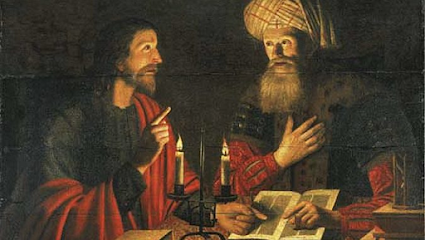2 CHR 36: 14-16, 19-23; PS 137: 1-6; EPH 2: 4-10; JN 3: 14-2
The actual midpoint of Lent occurred this past Thursday, and this day has traditionally been viewed as a day of celebration, when we sort of lessen the soberness normally attached to Lent. You may notice some changes in the church itself in terms of environment, and priests and deacons have the option of wearing pink or rose vestments rather than purple or violet. This Sunday has a corresponding day during Advent called Gaudete Sunday. The point of both these days is providing us with encouragement in the midst of our penitential seasons.
As part of this more upbeat attitude and approach to our celebrations of Mass this weekend, there is a focus on salvation and redemption, which is the reason we have to “rejoice.”
There are two Books of Chronicles — First Chronicles and Second Chronicles. Although Chronicles tends to repeat much of what has gone before in the Bible, the writer (the chronicler) brings a different approach to some aspects. The material of Chronicles lists genealogies from Adam to King Saul and covers the death of Saul, the reign of King David, the reign of King Solomon, and from the division of the monarchy into the northern and southern kingdoms to the end of the Babylonian exile.
Our First Reading comes from the final chapter of Second Chronicles, so it includes the beginning of the Babylonian Exile (607-586 B.C.). The chronicler spent a lot of time addressing the rebuilding of the Temple in Jerusalem (thus the statement Laetare, Jerusalem (“Rejoice, Jerusalem”). The final verses of today’s readings are indeed the closing of Chronicles. Chronicles points out to the Jewish people, and to us also, that they are strongly connected to God’s overall plan. “Whoever, therefore, among you belongs to any part of his people, let him go up (return to Jerusalem) and may his God be with him.” The people were released from exile by King Cyrus of Persia in the first year of his reign. Where the Books of Kings seems to be centered on stern moral judgments, Chronicles is essentially a book of hope. That is why we rejoice. Christ’s saving grace gives us hope during this time of Lent.
St. Paul, in his letter to the Ephesians, our Second Reading, reminds us “For by grace you have been saved through faith, and this is not from you; it is the gift of God.” What a reason to rejoice. God loves us even when we are not lovable. He loves us even when we do not give Him a reason to do so.
We are also reminded that God created each of us. In this same reading St. Paul declares, “for we are his (God’s) handiwork.” In the original Greek the word translated as “handiwork” is poiema (ποίημα). Another meaning of the word is considered by some scholars to be “masterpiece.” The word poiema is also the root word for “poem” and “poetry.” What a joyous thought for us to consider and appreciate! We, each and every one of us, are God’s masterpiece, His poem. That is a reason to celebrate, but it is also a reason for us to be doing things during Lent to make us more that way.
“For God so loved the world that he gave his only Son, so that everyone who believes in him might not perish, but might have eternal life.” (John 3:16) There are well more than 30,000 verses in the Bible as we know it, but this particular verse has been held forward as the most succinct declaration of the entire Gospel message. Yet, we may dissect all the meanings too much, but because of its brevity and its power it is worthy of a close look. “God so loved the world…” This includes all of us, the entire world; it does not limit this love to a particular group or location. “He gave…” That is what God does; He gives. We are the recipients. Stewardship is understanding that is the case, and striving to share some of those gifts “…so that everyone believes.”
This is much more than an intellectual conviction. It means to trust in God, to rely on God, and to cling to God in many ways. That is also at the basis of a stewardship way of life. We respond to God by becoming disciples and placing our total trust in Him. “…might have eternal life.” The concept of eternity is beyond our ability to comprehend as humans. This is much more than living forever; it means living with God, in His glory forever. That is what we all strive for; that is why we do what we do always, not just during this Lent. That also is a reason to “rejoice.”


No comments:
Post a Comment